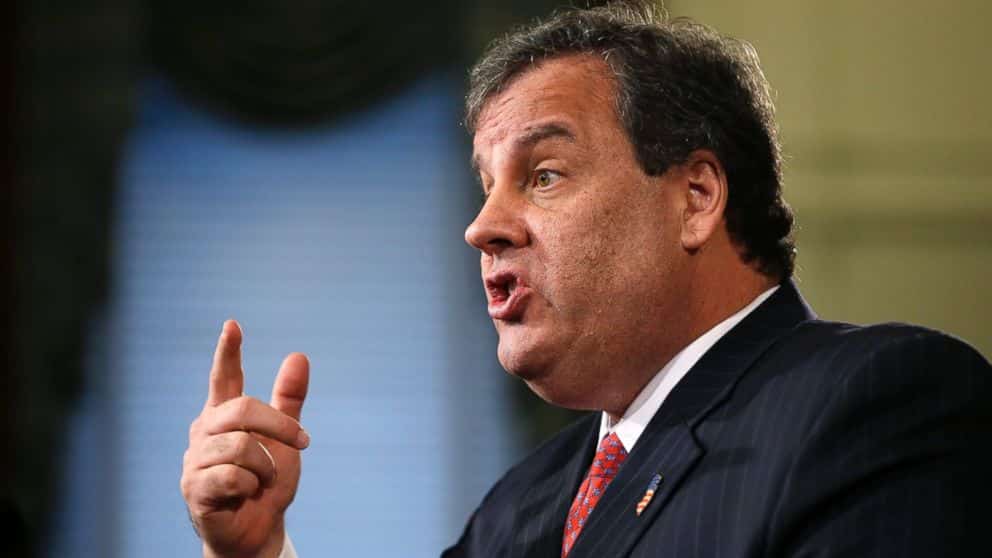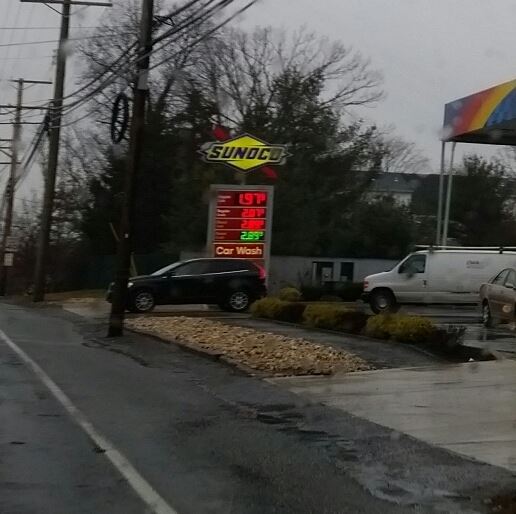the staff of the Ridgewood blog
Ridgewood NJ, Senators Paul Sarlo (D-Bergen) and Steve Oroho (R-Sussex) today announced that they reached a bipartisan agreement funding a 10-year, $20 billion Transportation Trust Fund and a series of wide-ranging tax cuts that are designed to create jobs, strengthen New Jersey’s economy and create tax fairness.
“We are optimistic that our plan for a 10-year, $20 billion Transportation Trust Fund will win the support of business and labor leaders, environmentalists and transportation advocates, and the millions of New Jerseyans who are tired of driving over poor highways and crumbling bridges, jamming into overcrowded buses and trains that break down and get delayed too often,” said Senator Sarlo. “This plan will create jobs, spur economic growth, increasing housing values and make New Jersey competitive for decades to come.”
“The plan we have put together will save hundreds of millions of dollars for New Jersey taxpayers by ensuring that out-of-state drivers who use our roads pay their fair share for their upkeep,” said Senator Oroho. “Just as important, it makes New Jersey’s tax structure more competitive. Our plan eliminates the estate tax, gives senior citizens an exemption on their retirement income, raises the Earned Income Tax Credit for the working poor, makes charitable contributions to New Jersey social service providers tax-deductible, and provides a gas tax deduction for those who have to drive the most.”
The Sarlo-Oroho plan calls for a 7% Petroleum Products Gross Receipts Tax, a 10-cent-per-gallon PPGRT tax on motor fuel, and a 3-cent-per-gallon PPGRT diesel surcharge, all imposed at the wholesale level If oil companies passed the full cost of the PPGRT tax on to motorists, the gas tax increase would be 23 cents a gallon. Added to New Jersey’s current 14.5-cent tax on motor fuels, New Jersey’s 37.5-cent per gallon would still be lower than both New York’s 42.4-cent motor fuel tax and Pennsylvania’s 50-cent tax.
All motor fuel taxes will be dedicated solely to the Transportation Trust Fund under a constitutional amendment already scheduled to go on the ballot in November.
Senators Sarlo and Oroho noted that the Petroleum Products Gross Receipts Tax increases and all of the phased-in tax cuts – elimination of the estate tax, an Earned Income Tax Credit rasied to 40% of the federal level, the $100,000 senior retirement income tax exemption, the deduction for charitable contributions, and the gas tax deduction – are included in one tax bill.
“Creating the right tax structure to pay for our road and bridge infrastructure, combined with tax cuts to help make New Jersey more competitive and retain income and capital, will provide tens of billions in tax relief over the next 25 years, ” said Senator Oroho said.
A second bill authorizes a 10-year, $20 billion Transportation Trust Fund to replace the current five-year TTF that expires June 30 and runs out of money for new projects by April.
“This is a robust transportation capital plan that will double county and municipal transportation aid to hold down property taxes, fund the Hudson-Bergen and Camden-Glassboro light rail extensions, and expand rail freight funding to deal with the doubled cargo that the giant Panamax super freighters will be bringing into Port Newark once the Bayonne Bridge is raised,” Senator Sarlo said. “We are calling on all of our colleagues on both sides of the aisle in both houses to support it.”
DRAFT PLAN FOR TRANSPORTATION TRUST FUND AND TAX CUTS
1. $2 billion a year Transportation Trust Fund authorizing spending of $20 billion over 10 years, with all revenue from motor fuels taxes constitutionally dedicated and unused funding rolled over into TTF Capital Fund surplus
2. TTF Funding: 23 cents in motor fuels taxes added to existing 14.5-cent gas tax
· Existing 10.5-cent per gallon tax on motor fuel,13.5-cent tax on diesel, and 4-cent Petroleum Products Gross Receipts Tax on motor fuel and non-motor fuel use remain dedicated to payoff of existing debt.
· Existing $200 million in constitutionally dedicated sales tax revenue remains dedicated to payoff of existing debt (but additional $346.2 million in sales tax revenue the Governor used in FY17 budget to plug hole in TTF is shifted back to General Fund to pay for tax cuts)
· New 7% PPGRT tax on motor fuel (equivalent to 12-cent tax hike on regular gas as of May 1 prices), with floor set at price level when new tax goes into effect. Future price increases projected to just about offset future decline in motor fuel consumption over next decade due to fuel efficiency; while PPGRT^ tax rate will go up, consumers will end up paying about the same amount.
· Additional 10-cent per gallon Petroleum Products Gross Receipts Tax on regular motor fuel and 14-cent PPGRT on diesel fuel.
· New7% PPGRT tax on jet fuel (aviation kerosene) to replace current tax limited to taxiing and takeoffs, and 7% PPGRT tax on non-motor fuel use represents increase from current 2.3% (home heating oil still exempted).
· Pilot Vehicular Mileage Tax on electric, hydrogen-powered and other non-gas powered vehicles to kick in one year after passage based on Oregon-California model, with revenue dedicated to TTF projects that reduce emissions such as mass transit or congestion reduction initiatives. Drivers and businesses can choose straight $150 user fee for individuals or $300 for businesses paid with registration renewal.
3. Increase Earned Income Tax Credit from 30% of federal credit to 35% of federal credit effective for 2016 tax year to offset PPGRT motor fuel tax increase for those earning up to $45,000.
4. Phase out estate tax, starting with increase from $675,000 threshold to exemption on first $1 million effective December 31, 2016, scaling up to full repeal of estate tax effective December 31, 2019, following the schedule set in the original Sarlo-Oroho bill.
5. Increase exemption for retirement income for those earning $100,000 or less from current $20,000 for couples/$10,000 for individuals to $40,000/$20,000 in the 2017 tax year, ramping up to $100,000/$50,000 for the 2020 tax year.
6. Establish income tax deduction for contributions to New Jersey charities limited specifically to charities engaged directly in meeting the social services needs of the most vulnerable, such as food banks, Catholic Charities, ARC, United Way, homeless shelters and Meals on Wheels. Eligible charities would be developed from NJ State Employees Charitable Campaign list, which has been properly vetted since 1985 and has strict standards. Deduction would be phased in over four tax years from 2017 to 2020.
7. Establish income tax deduction of all gas taxes paid by those for whom gas tax exceeds 1% of income. Consumer can save credit card receipts or use standard multiplier based on odometer readings. Mileage reimbursed by employer is not eligible, nor is gas tax paid for commercial vehicles.
8. Tax cuts are offset by $346 million in reallocated sales tax revenue (over and above the $200 million constitutional dedication) that Administration raided to keep TTF solvent in absence of promised PAYGO funding, plus $57 million to $75 million in additional income, sales and payroll tax revenue generated by increased TTF spending and tax cuts. Net to budget is break-even until FY20, 110 million loss in FY21 and $294 million loss in FY22, but that does not include any projection of additional income or sales taxes generated by wealthy taxpayers or seniors deciding to stay in New Jersey because of tax policy changes.
9. Overall, this program dramatically improves the state’s cash-flow position and sharply reduces the amount of short-term borrowing from capital markets that would be needed to make quarterly pension payments. Treasury and TTF regularly borrow back and forth. The $1 billion rolling surplus in the TTF Capital Fund by the end of FY18 will range from $1.7 billion to $1.9 billion from FY20 to FY24. This money will be available to Treasury for short-term borrowing at the beginning of the year (bond payments come due at the end of December and the end of June). In addition, fuel tax revenues come in monthly, while the cost of the EITC, pension and charitable tax cuts do not hit until the end of the fiscal year, effectively improving the state’s cash flow position by $120 million a month during the course of each year. The net result is that the state will be able to make quarterly pension payments without having to borrow more than the usual $2 billion to $2.5 billion that we have traditionally borrowed from credit markets on short-term notes due by June 30 each fiscal year.













